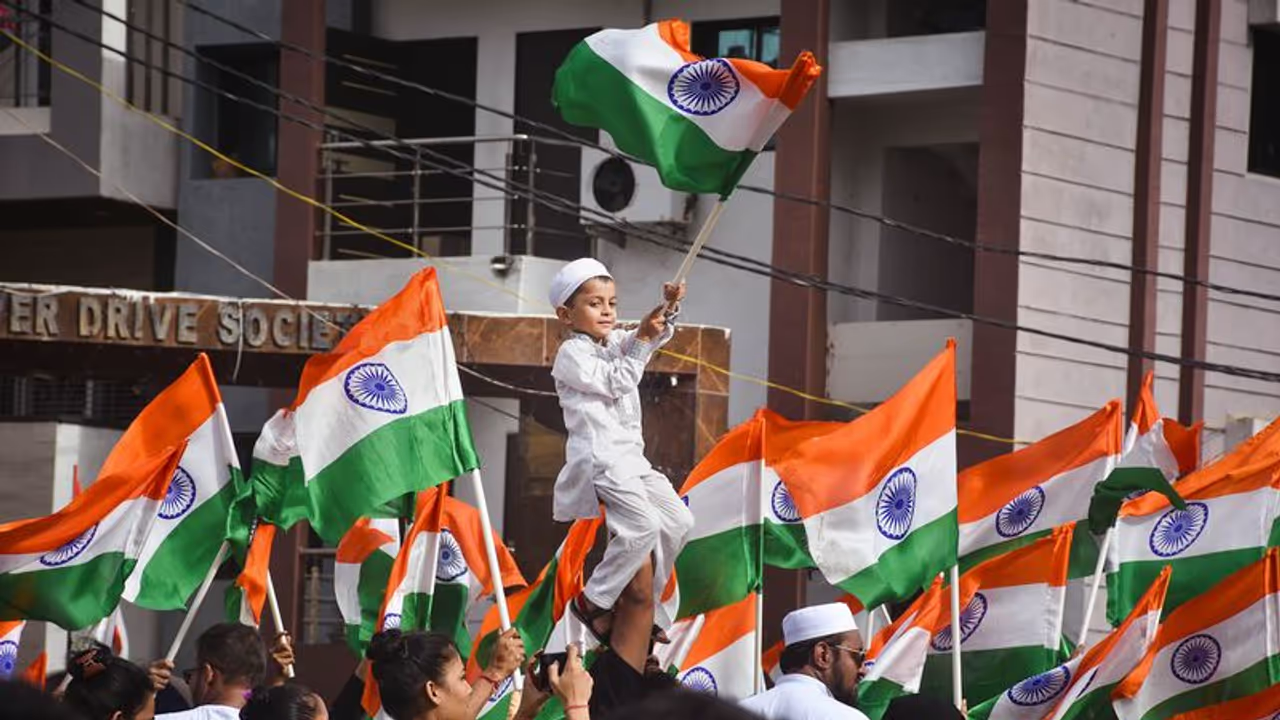The Indian Muslim community needs to fast-track various reform initiatives that can help Muslim women in realizing their rights and develop to full human potential, says Shomaila Warsi
Indian Muslims can play a vital role in making a strong India by actively participating in the country's development and progress. Here are the seven ways that can make Muslims, about 15 per cent of India's population, participate as equal citizens in making India a peaceful and prosperous nation.

1. Education: Education is the key to empowerment and progress. Indian Muslims should focus on getting a good education, particularly in science, technology, engineering, and mathematics (STEM). This will benefit them individually and make them contribute to the country's growth. The literacy rate of Muslims is 68.5%, much below the national average. Madrassa education needs to be complemented by regular education. In recent years there has been a lot of activity within the community for better educational outcomes.
2. Entrepreneurship: Indian Muslims should explore entrepreneurship opportunities and start their businesses. The community has produced renowned entrepreneurs who are an important part of India's growth story like Azim Premji (Chairman, Wipro), M. A. Yusuff Ali, Chairman of LuLu Group, and Yusuf Khwaja Hamied (Chairman, Cipla) Entrepreneurship is the most effective antidote against joblessness within the community.
3. Community Development: Indian Muslims should actively participate in the development of their communities. They can contribute to social welfare projects, health initiatives, and education programs to uplift their communities. Faith-based organizations play an important role in filling the gap between government and NGOs.
4. Political Participation: Indian Muslims should actively participate in the political process by voting and running for public office. This will enable them to have a voice in the country's decision-making process and help shape policies that benefit all communities. They must put development and progress above everything else and benefit from the fruits of democracy. India has seen Muslims holding the highest offices in the Country, like the President of India, Vice President of India, Chief Justice of India, Chief Election Commissioner of India, and the Director of the most sensitive Intelligence Bureau. India is a land of equal opportunity for all communities.
5. Interfaith Harmony: Indian Muslims should promote interfaith harmony and work towards building bridges with other communities. This can be done by organizing cultural exchanges, community events, and dialogues to foster understanding and respect among different religions and cultures. There are a lot of misunderstandings within the community about other faiths and there are also a lot of wrong ideas prevalent in other communities about Islam. It is only through dialogue and search for common ground that these fault lines can be bridged.
6. Patriotism: Indian Muslims should take pride in their country and work towards its development and progress. They can participate in initiatives such as Swachh Bharat Abhiyan, Digital India, and Skill India to contribute to the country's growth. Confusion is spread that Islam is a transnational faith and there is no scope for patriotism in it. However, scholars like Javed Ahmad Ghamidi have argued that nationalism can be a positive force if used to protect the rights and interests of Muslims and promote their welfare. In his book Mizan, Ghamidi writes that "The Quran and the Sunnah do not prohibit nationalism, but they do prohibit the use of nationalism to justify aggression and oppression against other people or groups.
7. Muslim women and marginalized Muslims: Indian Muslim community needs to fast-track various reform initiatives that can help Muslim women in realizing their rights and develop to full human potential. There has been a lot of resistance to accepting new ideas on this front and Muslim women and trans-people, Pasmanda Muslims, Shia, Ahmadi, and other divergent schools of thought within Islam need to be tolerated and respected. India's syncretic traditions are all about a sense of community between people of different denominations. And by promoting ideas of tolerance and acceptance, Indian Muslims will be doing a great service to the idea of India.
Dr Shomaila Warsi teaches in the Department of Political Science and International Relations, Maharaja Agrasen College, Delhi University.
This article originally appeared in AwazTheVoice, and has been reproduced with explicit permission.
